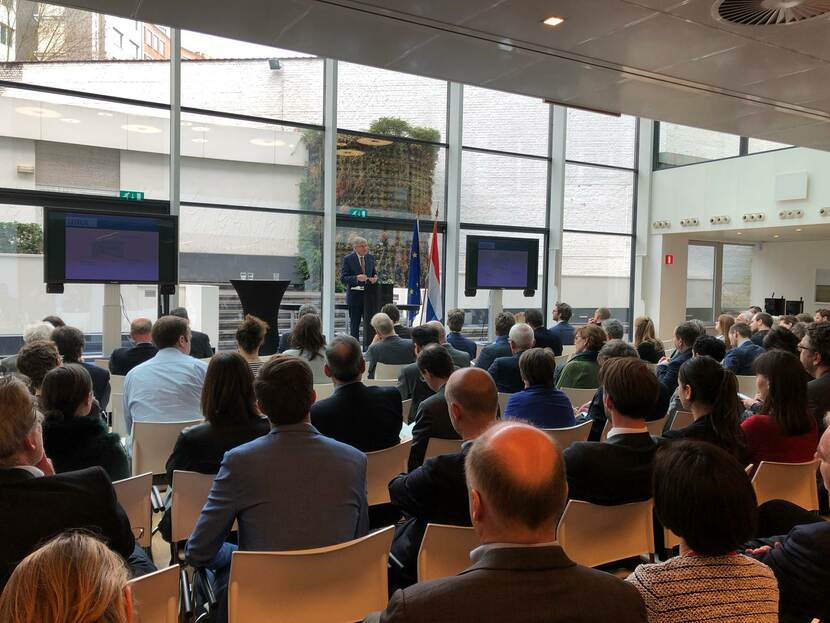Europe Report draws attention in Brussels
We cannot expect everyone to think the same way in a Union with nearly 30 members. So how can the European Union answer the need of its citizens despite that? On 12 March, more than 120 guests listened to Ernst Hirsch Ballin, Mathieu Segers and Huub Dijstelbloem as they spoke out in favour of more variation within the European Union.

Europe’s future
The reason for this gathering was the publication of the WRR report Variation in the European Union on the future of Europe. The book presentation in Brussels just happened to be scheduled for a day on which the newspapers were full of the umpteenth Brexit vote by the British Parliament. Staff from the European Commission, the European Council and the embassy, as well as journalists, had gathered in the hall that afternoon.
Needs of citizens
The WRR delegation explained that the European Union should help provide for the need of its citizens with regard to safety, stability, prosperity and social protection. It does not always have to do so in the same way everywhere, however. Variation offers opportunities to tackle topics that require European collaboration in such a way that national democracies can continue to play their part. As such, the WRR aims to relieve the discussion about the European Union’s future from the tendency to embrace uniform views of the future.
Variation is liberating
After the comments, there was ample opportunity for a dialogue with the audience. Experts in the audience felt that the idea of variation was liberating. Questions concerning further clarification also arose, however. What could such variation look like with regard to the refugee crisis? What does variation mean for decision-making procedures? Can the Union respond effectively to China’s expansion drive? In the subsequent background talk with the journalists, Ballin, Dijstelbloem and Segers, the authors of the report, talked about how the report was created and how thinking in terms of variation may make a difference in current issues.
Analysis of the balance of forces
On the invitation of Dutch Ambassador Maryem van den Heuvel, the day was concluded with a working dinner at the Embassy of the Netherlands in Brussels. Other Dutch representatives in the Eurogroup, the European Commission, the Timmermans Cabinet, and the Permanent Representatives, offered an analysis of the balance of forces. The various dossiers and opportunities for the Netherlands were explored further, based on the idea of variation.